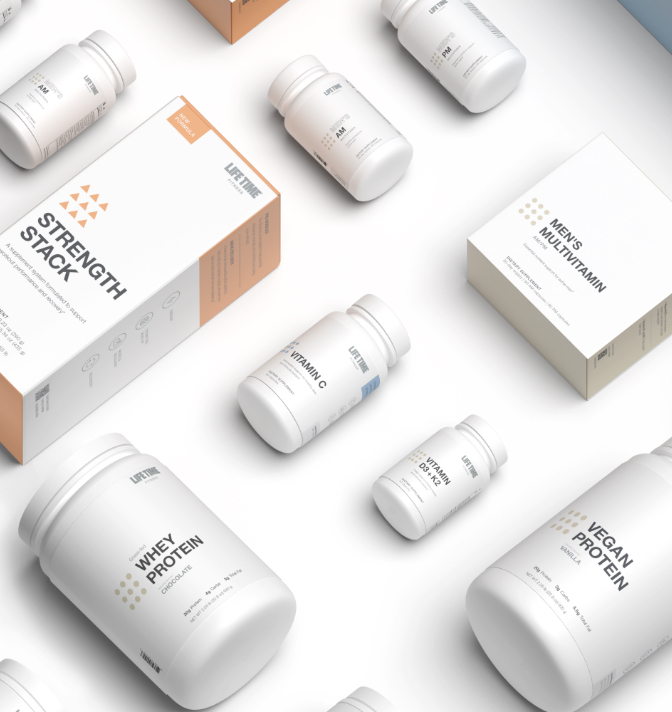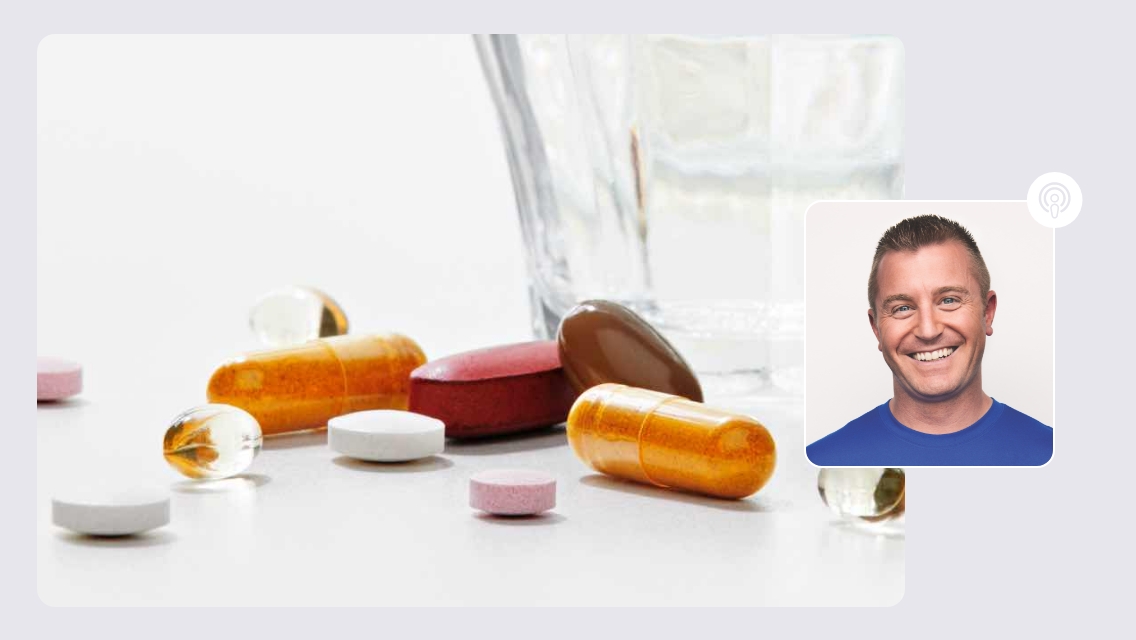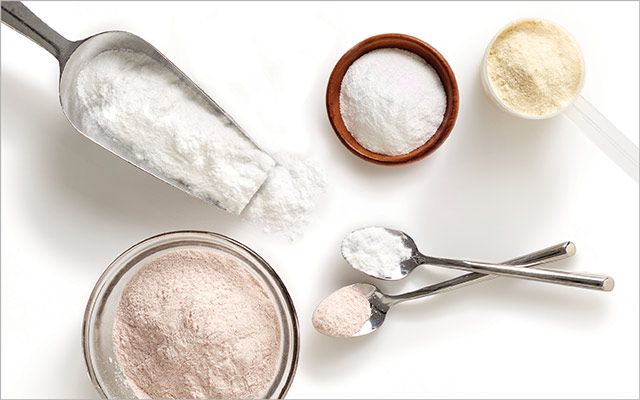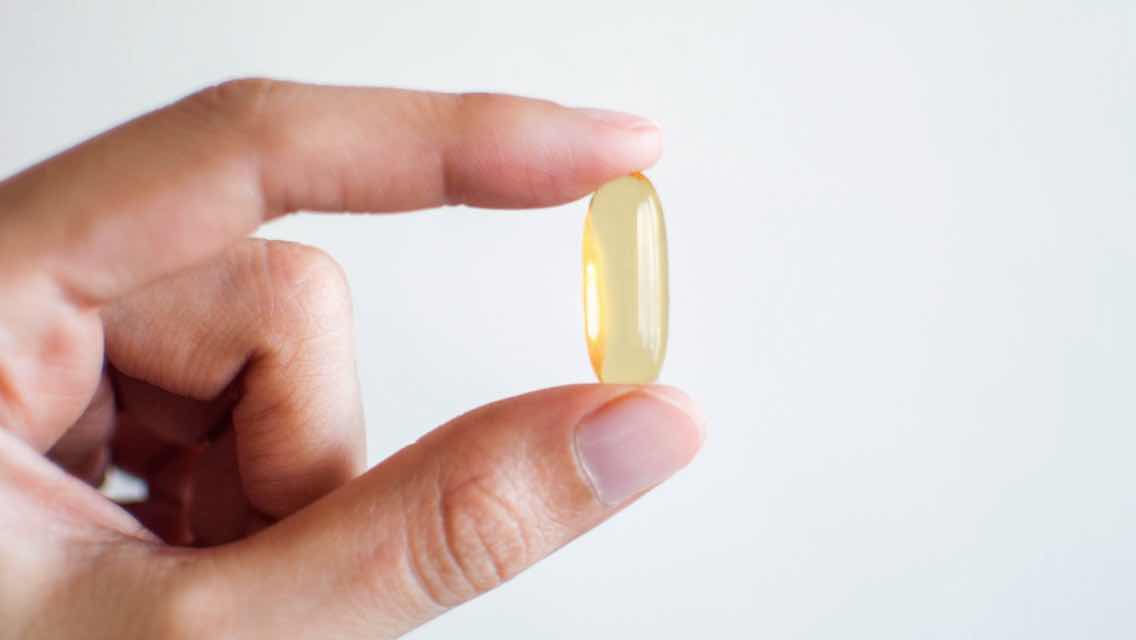When energy levels are in the tank, it tends to make everything in life feel harder. The tricky thing with low energy, however, is that it’s ambiguous and can be caused by a lot of different things such as:
- Imbalanced or inadequate nutrition
- Deficiencies in key vitamins and minerals
- High sugar intake contributing to blood sugar ups and downs
- Unmanaged stress
- Lack of daily sunlight exposure
- Inconsistent exercise
- Tossing and turning at night, or not getting enough hours of sleep in
- Underlying conditions such as hypothyroidism or anemia
If you’re dealing with any of these, you’re not alone. Optimizing healthy habits to address the above factors is important, yet not always possible to do perfectly. This is where certain supplements can come in handy.
No pill will replace healthy lifestyle habits, but that doesn’t mean we can’t benefit from supplementation — especially when used to help fill in nutrient gaps and give your body a gentle boost when it needs it most.
These are our team’s top picks for supplements that can help increase energy. Note: Always check with your physician before adding new supplements to your regimen.
Magnesium Malate
Magnesium is typically thought of as a relaxing, restorative mineral due to its role in the nervous system. But it’s actually required for more than 300 different enzymatic reactions in the body, including the production of energy.
It’s estimated that the majority of us have sub-optimal levels of magnesium — with some estimates noting it’s likely impacting every seven in 10 individuals. Most of us aren’t getting enough from food sources, and we’re in an uphill battle against a number of factors that increase our needs for magnesium, including stress, sugar intake, caffeine intake, heartburn medications, and alcohol use.
There are several forms of magnesium, but a chelated magnesium malate such as the one offered through Life Time is one of the best absorbed forms and is helpful for those who are fatigued and need energy.
Generally recommended dose: 200 to 300 mg each evening
Read more: “Magnesium: Health Benefits and Best Ways to Supplement”
Creatine Monohydrate
Creatine isn’t just for bodybuilders.
Creatine can be obtained through meat, fish, and poultry. Most of your body’s creatine stores are in your muscles in the form of phosphocreatine, which is creatine attached to a phosphate group. It can be found in smaller amounts in your liver, kidneys, and brain.
When your muscles need to produce energy, a phosphate group is added to a molecule called ADP (adenosine diphosphate, which is adenosine with two phosphate groups) to make ATP (adenosine triphosphate, which is adenosine with three phosphate groups). The more phosphocreatine you have, the more phosphate donors you have, which results in the production of more ATP and energy.
The most effective way to increase phosphocreatine stores is to supplement with a pure creatine monohydrate. It’s well-researched and known to also increase power output and reduce fatigue during exercise. We recommend using a creatine monohydrate that is made with the highest-quality sourcing from Germany such as this one.
Generally recommended dose: 5 grams per day of the powder form
Read more: “Creatine: Why This Supplement Is Not Just for Bodybuilders”
B Vitamins
When energy is low, it can be tempting to reach for an energy drink. Most of them are a blend of B vitamins and caffeine. However, maintaining an optimal level of B vitamins at baseline is crucial for not just our overall energy level, but our general health as well. (And there are other reasons why we don’t advise consuming many of the popular energy drinks — many of them are full of sugar or artificial sweeteners and flavors. Most on the market also contain poorly absorbed, low-quality forms of the B vitamins they contain.)
For most of my clients, I recommend a quality multivitamin/multimineral supplement with several active forms of B vitamins combined with other essential vitamins and minerals to get the most bang for their buck — both financially and from its impact since a wide range of vitamin and mineral deficiencies can worsen fatigue.
I also prefer a multivitamin that’s rich in B vitamins over taking any standalone, isolated form of any specific B vitamin unless there’s a medical reason to supplement with just one. The family of B vitamins is designed to work best when taken together.
When looking at the label of a multivitamin, try to find these versions of key energy-supporting B vitamins with more than 100 percent of the daily value listed on the label, if not more:
- Vitamin B1, or thiamin as thiamin HCl, which is involved in energy production
- Vitamin B2, or riboflavin as riboflavin-5’-phosphate, which has a role in making sure other B vitamins are activated
- Vitamin B3, or niacin in the niacinamide form to support the conversion of food to energy
- Vitamin B5 or pantothenic acid as D-calcium pantothenate, which is crucial for metabolizing fats, carbohydrates, and proteins and helping turn them into energy
- Vitamin B6 in the pyridoxal-5’-phosphate form, which makes it readily usable for energy production in the cells
- Vitamin B7 or biotin which also helps convert the food you eat into energy
- Vitamin B9, or folate as 5-methyltetrahydrofolic acid (which is superior to folic acid for usability), as folate is required for your body to carry oxygen via red blood cells to fuel energy
- Vitamin B12 in the methylcobalamin form; a well-known B vitamin for its role in keeping energy levels high, but also is involved in cognitive health, heart health, and more
Check out Life Time’s go-to multivitamin options here.
Generally recommended dose: Varies for each B vitamin, but optimally >100 percent of the recommended daily allowance (RDA) in a quality multivitamin taken according to package directions.
Learn about what else to look for in a multivitamin here: “High-Quality Multivitamin | What to look for. Why it matters.”
Citrulline + Beet Juice Powder
Found in rich amounts in watermelon, citrulline is a specific amino acid (protein building block) that can help open your blood vessels to deliver nutrients to working muscles. By allowing these nutrients and oxygen to be delivered faster, the body can better produce energy. Plus, it’s known to both support power output (i.e., energy) during workouts and help combat fatigue from intense exercise which can further give the body a boost.
Beet supplements also have encouraging data to show that they too can help with oxygen and nutrient delivery, which in turn helps boost energy levels and stamina.
These both can be found in Life Time’s mindfully-designed Pre-Workout supplement, which includes not just citrulline and beet supplementation, but also active B vitamins and other ingredients to support workout performance, cognitive health, and energy. It’s worth noting that the combination of caffeine and L-theanine it contains is a great way to use caffeine without as many jitters that might come from an energy drink or extra cup of coffee.
Generally recommended dose: 6,000 mg of L-citrulline and 250 to 500 mg of RedNite® Beet Juice Powder
Read more: “Is Pre-Workout Right For You?”
Honorable Mentions: Iron and CoQ10
In recent years, I’ve anecdotally seen iron deficiency on the rise with the increasing trends of plant-based eating and more meat avoidance. Iron found in animal products is called heme iron, in contrast to non-heme iron in plant-based sources. Heme is more easily used by the body, which is why the iron requirements for vegetarians and vegans are roughly double the requirements for those who consume animal-based sources, such as dark meat poultry and red meat.
Iron deficiency directly contributes to anemia, which is when there is a compromised ability to deliver oxygen throughout the body. One of the main red flags and symptoms of anemia is chronic fatigue. If someone is iron deficient, it will be nearly impossible to have good energy until it’s corrected.
However, supplementing with iron when it’s not needed can cause a variety of health problems. Iron gets an honorable mention as a supplement because it’s that powerful when someone needs it — but that can only be determined through blood work and under the care of your healthcare provider. When needed, a bisglycinate chelate form of iron is usually best tolerated.
Generally recommended dose: As warranted based on blood work
Coenzyme Q10 is also worth mentioning, as it’s an antioxidant in our cells that’s involved in producing energy. It’s lost as we age and also declines with most cholesterol-lowering medications. It’s not present in amounts in food that could meaningfully raise low levels, so supplementing with the absorbable, oxidized ubiquinone form is what’s been shown to increase levels in the body.
Generally recommended dose: 100 mg





